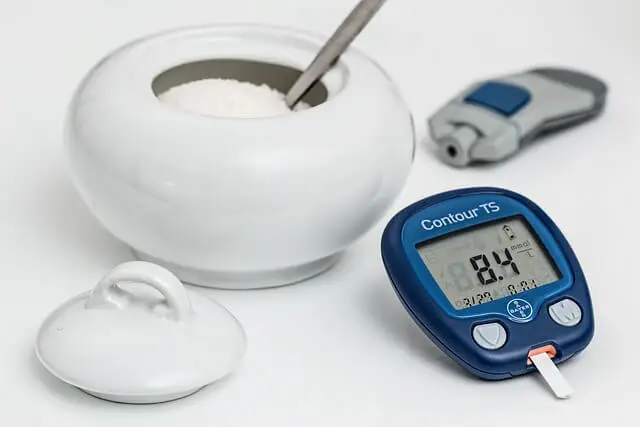Glycemic alert?
Glycemic alert in good health
WE SHOULD BE CONSCIOUS OF OUR GLYCEMIC STATE WHEN WE ARE IN GOOD HEALTH
As people age, the risk of developing diabetes increases, with approximately 25% of adults aged 65 years or older having diabetes. Diabetes is a chronic condition that affects the way the body processes blood sugar (glucose). Poorly managed diabetes can lead to serious health complications such as heart disease, nerve damage, and blindness.
Regular monitoring of blood sugar levels: Older adults with diabetes should regularly monitor their blood sugar levels to ensure they are within a healthy range. This may require multiple daily checks, depending on the severity of their condition.
Healthy eating: A balanced and nutritious diet is crucial for managing diabetes. Older adults should aim to eat a variety of foods that are low in sugar and high in fiber, such as fruits, vegetables, and whole grains.
Regular physical activity: Regular exercise can help improve blood sugar control and reduce the risk of developing diabetes-related complications. Older adults should aim for at least 150 minutes of moderate-intensity exercise per week.
Medication management: Many older adults with diabetes may be taking multiple medications, including insulin. It is important to keep track of medication schedules and doses to ensure proper blood sugar control.
While self-management is crucial, external factors such as the cost of insulin can also play a significant role in diabetes management. Giant companies in the pharmaceutical industry have been under scrutiny for the high cost of insulin, which can make it difficult for many people to afford. This has led to calls for companies to lower the price of insulin to make it more accessible for those who need it.
Lowering the price of insulin can have a significant impact on the lives of older adults with diabetes. It can improve their ability to manage their condition by reducing the financial burden of purchasing insulin, which can be a major expense for those on fixed incomes.
Additionally, managing diabetes while traveling can pose unique challenges for older adults. Here are some tips for managing diabetes while traveling:
Pack extra medication and supplies: It is important to bring enough medication and supplies to last the entire trip, as well as extras in case of emergency.
Carry a medical alert bracelet: A medical alert bracelet can help alert others in case of a medical emergency related to diabetes.
Adjust medication schedules: Changing time zones can affect medication schedules. It is important to adjust medication schedules accordingly.
Plan meals and snacks ahead of time: Planning meals and snacks ahead of time can help ensure that healthy options are available, even when on the go.
In conclusion, effective self-management and care are essential for older adults with diabetes to maintain their health and wellbeing. This includes regular monitoring of blood sugar levels, healthy eating, regular physical activity, and medication management. Lowering the cost of insulin can also play a significant role in diabetes management, making it more accessible for those who need it. Managing diabetes while traveling can pose unique challenges, but with proper planning and preparation, it is possible to maintain glycemic control while on the go



